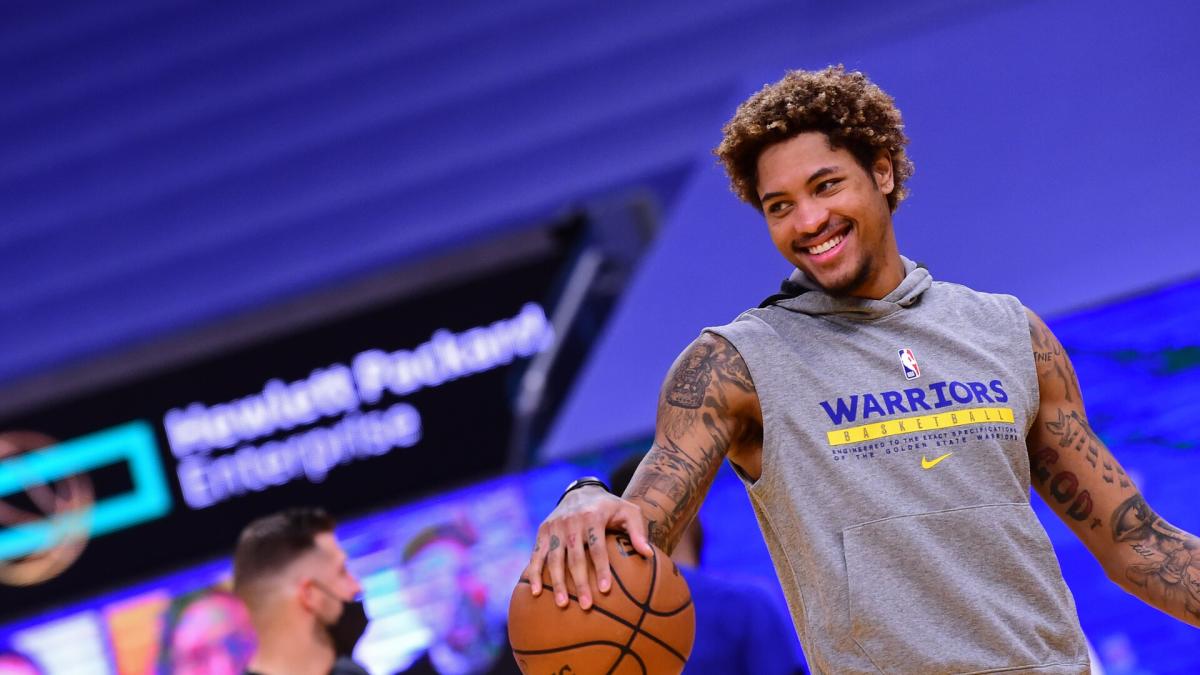The injuries that cost the Warriors the 2019 NBA Finals — to Kevin Durant (who was traded to Brooklyn the next offseason at his request) and Klay Thompson, most notably — combined with a Stephen Curry hand injury, crashed the Warriors into a 15-win team for the funky COVID/bubble 2019-20 season.
The next season, Warriors ownership wanted to get back on top — despite Thompson rupturing his Achilles and missing another season — and pushed for a trade to get Kelly Oubre Jr. to fill his role. At the urging of Warriors owner Joe Lacob, the Warriors gave up a couple of draft picks and took a massive tax hit to get Oubre. It didn’t come close to working out well — Oubre was inconsistent (scoring 15.4 points. game but shooting 31% from 3), as was Andrew Wiggins, plus rookie James Wiseman wasn’t ready for the spotlight, and the Warriors missed the playoffs again.
How that went down is why the Warriors haven’t taken a big gamble for someone like Brandon Ingram this offseason despite the need for a secondary playmaker, reports Monte Poole of NBC Sports Bay Area talking about the Warriors offseason.
Lacob, according to league sources, was a loud voice – the “driving force,” according to one – in favor of trading for Oubre. So much so that it didn’t matter that this would double Golden State’s luxury tax bill. Oubre’s one season cost the Warriors more than $80 million in salary and luxury taxes.
Though the Warriors typically like to make collective decisions, that was not the case with Oubre, according to sources. From Lacob down through various levels of power, including then-GM Bob Myers and the coaching staff, there were pockets of dissent. The biggest question seemed to be whether Oubre’s skills and disposition would complement the rest of the roster…
Every move since, including the addition of Chris Paul last summer, was made to supplement the roster rather than expand its core. Much of that approach is related to the Oubre experience. No longer are the Warriors willing to jeopardize their bottom line, sacrifice a bundle of draft picks or disrupt their roster for anyone who doesn’t rate a consensus.
Brandon Ingram, to cite an example, is among those who, according to sources, does not meet that level. There’s enough pro/con that any chance of him coming to Golden State is minuscule.
That story is a reminder of one of the great truisms of professional sports: When an owner pushes for a trade/signing over the advice of their GM/front office, it goes wrong 99 times out of 100. Stay in your lane.
The Warriors have remained patient this offseason, making some good depth moves — adding Buddy Hield, De’Anthony Melton and Kyle Anderson — and probably getting better (even without Klay Thompson), but did not do anything rash while looking for that second star to go next to Curry (and no, it’s not going to be LeBron James).
A large part of what has teams around the league hesitant to trade for Ingram is his contract situation. It’s not the $36 million he will make this season, it’s the max contract the 27-year-old is looking for starting the following year — teams look at his game and don’t want to pay him that, and they don’t want to give up what the Pelicans are asking for a one-year rental. While Ingram is an All-Star who averaged 20.8 points a game last season, teams are not sure he contributes enough to winning to pay him max money in the new CBA/tax apron environment (the same issue the Bulls are finding in trying to trade Zach LaVine).
After Golden State, Oubre signed in Charlotte, he played well in his role there, which landed him a spot in Philadelphia where he thrived as a secondary scorer last season. Oubre has value, he just didn’t fit with the Warriors. He does fit with the 76ers.

